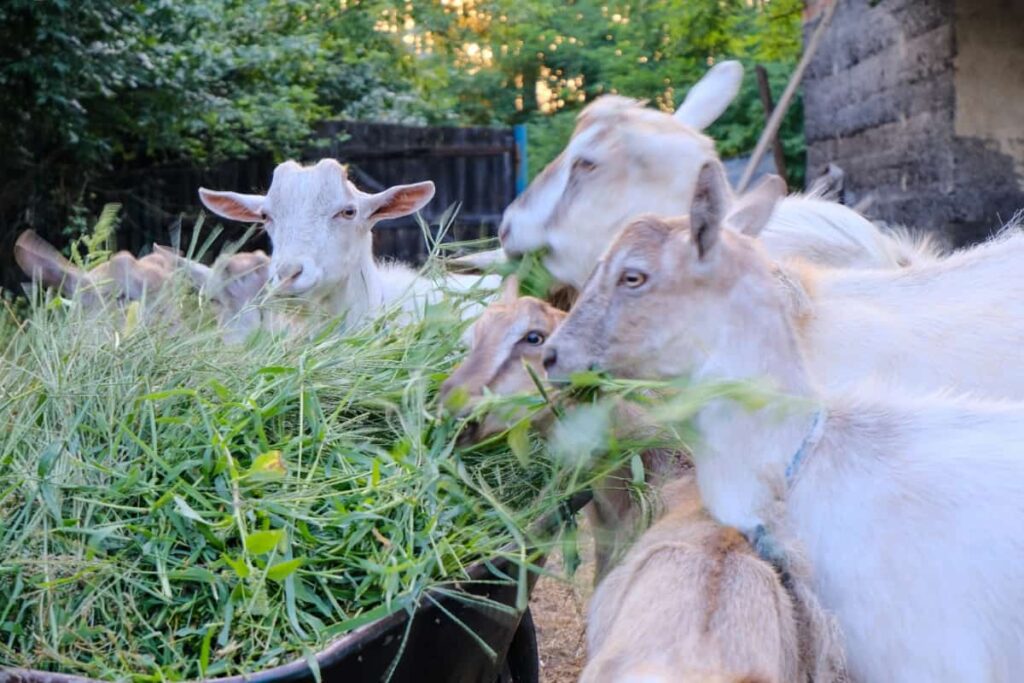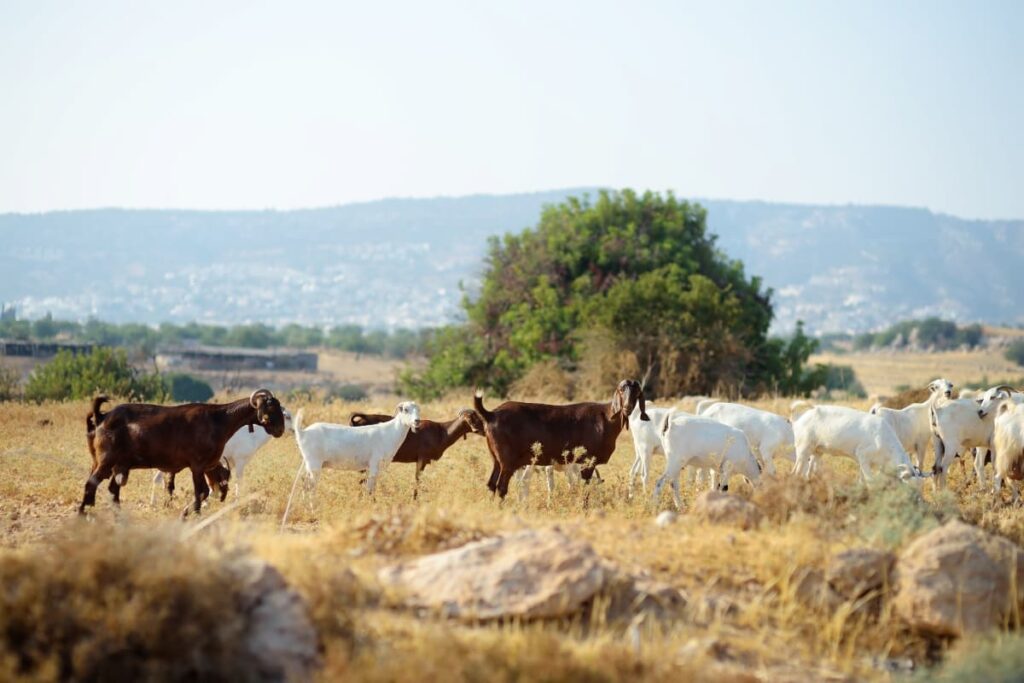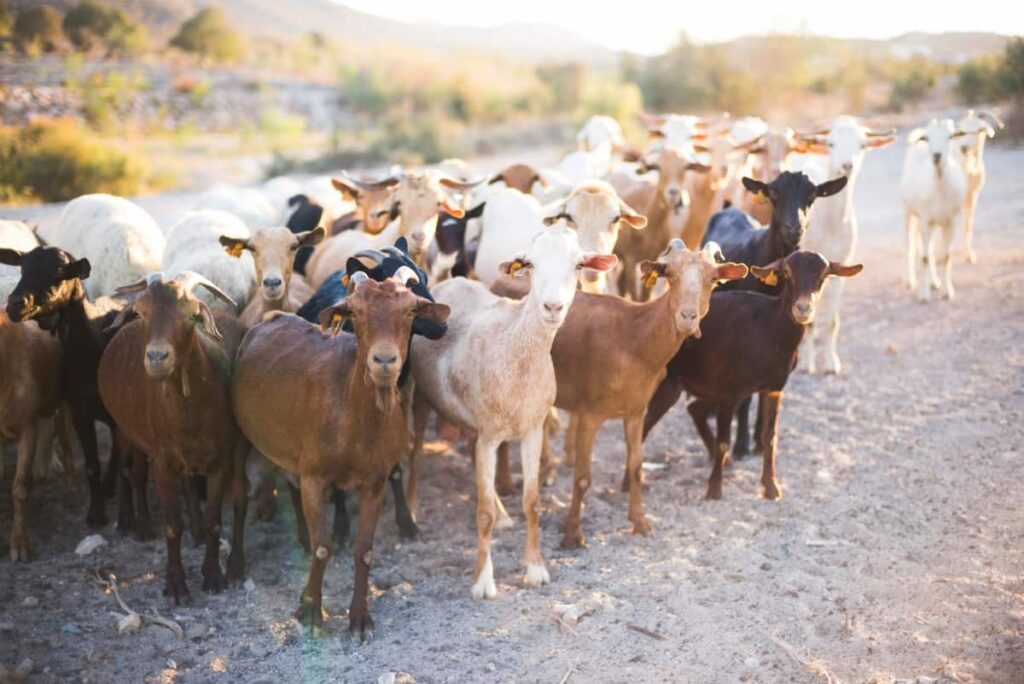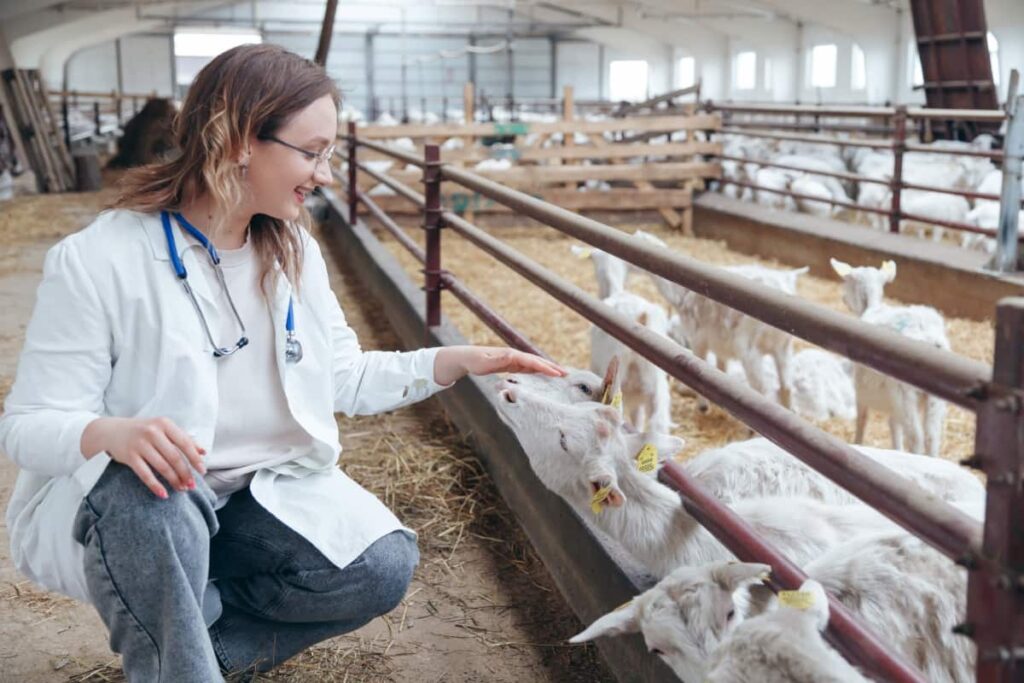Goat farming is the rearing of goats for various purposes. It has been practiced for centuries and is a popular venture worldwide. Goats are incredibly versatile animals that can adapt to different climates and terrains, making them suitable for rural and urban settings. Avoiding common mistakes in goat farming is vital for achieving sustainable success in this industry.

Mistakes to Avoid in Goat Farming
Neglecting Proper Housing and Shelter for Goats
Goats require protection from harsh weather conditions such as excessive heat, cold temperatures, rain, and strong winds. A sturdy and well-ventilated shelter will shield them from these elements. It should also be spacious enough to accommodate all the goats comfortably. Hygiene plays a vital role in preventing diseases among the herd. Neglecting proper housing can create an unsanitary environment where bacteria and parasites thrive.
This could lead to health issues affecting the individual goats and the entire herd. By avoiding this common mistake of neglecting proper housing and shelter for goats, you are setting up your farm for success by providing a safe environment that promotes optimal health and productivity for your beloved animals. Providing appropriate housing and shelter for goats is crucial to their overall well-being and productivity.
Inadequate Nutrition and Feeding Practices
One common mistake is underfeeding or overfeeding the goats. Both can result in adverse effects on their overall health. Underfed goats may suffer from malnutrition, weak immune systems, reduced milk production, and poor reproductive performance. Another mistake to avoid is not providing enough fresh water for your goats. Water plays a vital role in digestion, nutrient absorption, temperature regulation, and overall well-being of the animals.
Furthermore, neglecting proper pasture management and grazing practices can also lead to inadequate nutrition for your goats. Overgrazing or allowing them access to toxic plants can harm their health. It’s essential to consult with a veterinarian or livestock nutritionist to develop a suitable feeding program for your goats based on factors such as age, breed, stage of production (such as lactation), and availability of feed resources.
Lack of Proper Health Management and Veterinary Care
Maintaining your goats’ health should be a top priority in goat farming. Unfortunately, many farmers overlook this crucial aspect, leading to various health issues among their livestock. Regular veterinary care is essential for preventing diseases and detecting potential problems early on. Neglecting this can result in the spread of infectious diseases or the development of chronic conditions that could have been prevented with timely intervention.
In case you missed it: 9 Best Plants for Goats and a Few to Avoid

Additionally, providing proper nutrition and implementing good feeding practices go hand in hand with ensuring optimal health for your goats. Furthermore, regular vaccinations and deworming are vital components of an effective healthcare program for your goats. Cleanliness plays a significant role in preventing the spread of diseases in goats.
Overcrowding and Poor Space Management
Keeping too many goats in a confined space can lead to various issues, including stress, aggression, and the spread of diseases. When goats are overcrowded, they may not have enough room to move freely or access adequate food and water. This can result in reduced feed intake, slower growth rates, and overall poor health.
Additionally, overcrowding increases competition for resources and increases the animals’ stress levels. Calculate the number of goats your available land can support without compromising their welfare. Allocate separate areas for feeding, resting, kidding (giving birth), etc., ensuring adequate space in each section to avoid overcrowding. Proper space management is essential for maintaining a healthy environment for goats. Providing sufficient space allows them to exhibit natural behaviors such as grazing, climbing, and roaming.
Insufficient Fencing and Security Measures
Without secure fencing, goats may wander off and get lost or injured. Goats are naturally curious creatures and must find their way out if given the opportunity. This not only poses a risk to their safety but also poses a risk to other livestock or crops in neighboring areas. Furthermore, insufficient fencing can leave your goats vulnerable to predators. Predators such as coyotes or dogs can easily access your farm if the fence has weak spots.
This puts your entire herd at risk of being attacked or even killed. Investing in sturdy fences with appropriate height and materials is important for the safety and security of your goats. Additionally, regularly inspecting and maintaining these fences will help prevent potential issues before they arise.
Failure to Implement a Breeding Program
Breeding is a crucial aspect of goat farming that should never be overlooked. However, one common mistake many goat farmers make is failing to implement a proper breeding program. Without a well-planned breeding program, you may end up with goats unsuitable for your specific goals and objectives.
One mistake often made by novice farmers is keeping too many males or not having enough females in their herd. This imbalance can lead to aggression among males and inadequate mating opportunities for females. A well-executed breeding program ensures genetic progress by selecting superior animals as parents for future generations.
Improper Handling and Lack of Training
When handling goats, gentle and patient methods should always be employed. Rough or aggressive handling can cause animal stress and fear, decreasing productivity and even health issues. Adequate training is necessary to ensure that goats become accustomed to being handled by humans from an early age.
Lack of proper training affects how goats behave around humans and their overall behavior within the herd. Additionally, improper handling practices can lead to injuries for farmers and goats. Farmers can minimize these risks by implementing appropriate training techniques while ensuring a safe working environment.
Ignoring the Importance of Record-Keeping
Record-keeping is often overlooked in goat farming, but it plays an important role in the success and profitability of your farm. Keeping accurate records allows you to track important information about each goat, such as their health, breeding history, and milk production. Without proper record-keeping, making informed decisions regarding breeding programs, feeding practices, and overall herd management becomes difficult.
In case you missed it: Effective Goat Health Management Practices: Preventing and Treating Common Diseases

Additionally, record-keeping aids in assessing the productivity of individual goats. For dairy farmers, accurate milk production records allow for evaluating a doe’s performance over time and making informed decisions on culling or increasing milking frequency if necessary.
Neglecting Pasture Management and Grazing Practices
Proper pasture management is essential for your goats’ overall health and productivity. Failing to rotate your goats’ grazing areas can lead to overgrazing. This depletes the pasture of its nutrients and forces the goats to consume less desirable plants, which may not provide adequate nutrition. Implementing a rotational grazing system ensures your goats have access to fresh and nutritious forage. To ensure optimal health and productivity for your herd, prioritize rotational grazing techniques along with regular monitoring of pastures for nutrient levels and weed control efforts.
Disregarding Biosecurity Measures
This includes failing to implement proper quarantine protocols for new animals entering the farm, neglecting regular vaccinations and deworming schedules, and not practicing strict hygiene standards. Ignoring these essential measures risks introducing harmful pathogens or parasites into your herd, which can have devastating consequences. This impacts your goats’ health and also leads to financial losses. To avoid this mistake, establish a comprehensive biosecurity plan for your farm.
This should include separate areas for incoming animals where they can be quarantined before joining the rest of the herd. Maintaining cleanliness throughout your farm is also essential by regularly disinfecting equipment and maintaining proper waste management practices. Additionally, implementing a vaccination schedule based on advice from a veterinarian will help protect your goats against common illnesses such as pneumonia and clostridial diseases. Regularly deworming them will further ensure their overall health.
Frequently Asked Questions about Goat Farming Mistakes
Is Veterinary Care Necessary for Goat Farming?
Yes, it’s essential to have regular veterinary check-ups for your goats. This helps prevent diseases, detect potential health issues early on, and ensure proper medication and vaccinations.
Are There Any Specific Health Concerns I Should Watch Out for Goats?
Yes. If deworming practices are not regularly implemented, internal parasite infestations are common among goats. Other potential health issues include foot rot, respiratory infections, and nutritional disorders – keeping an eye out for these problems is vital.
Can I Feed My Goats Anything?
No, goats require a balanced quality hay or pasture diet and supplemental grains and minerals. Feeding them improper food can lead to health issues.
Should I Overlook Record-Keeping in Goat Farming Practices?
Keeping accurate records regarding breeding dates, medical treatments, and other important information is crucial for effective management.
In case you missed it: Pasture Management for Goats: Grazing Systems and Forage Selection

Conclusion
Goat farming can be a lucrative and rewarding venture, but it’s essential to approach it with the proper knowledge and strategies. Whether you’re a beginner or an experienced farmer, you must be aware of the mistakes that can occur when raising goats. Avoiding these mistakes can ensure a successful and profitable goat farm.
- Types of Grass Growing for Goat Farm
- How to Train Goats for Milking: A Beginners Guide
- Goat Milking Practices and Equipment: A Beginner’s Guide
- Goat Farming for Fiber: Producing Mohair and Cashmere
- Maximizing Goat Milk Production: Tips for Dairy Goat Farmers
- Goat Farming as a Family Business: Strategies for Success
- Profitable Kenya Goat Breeds for Commercial Dairy and Meat Business
- Unlock the Secrets of Oberhasli Goat: Discover Raising and Management Practices
- Ultimate Guide to Myotonic Goats: Explore Profile to Raising